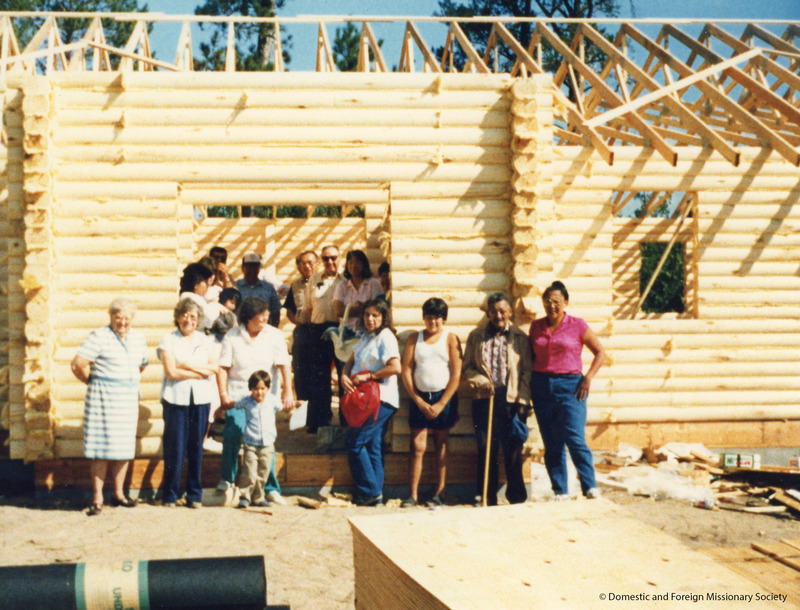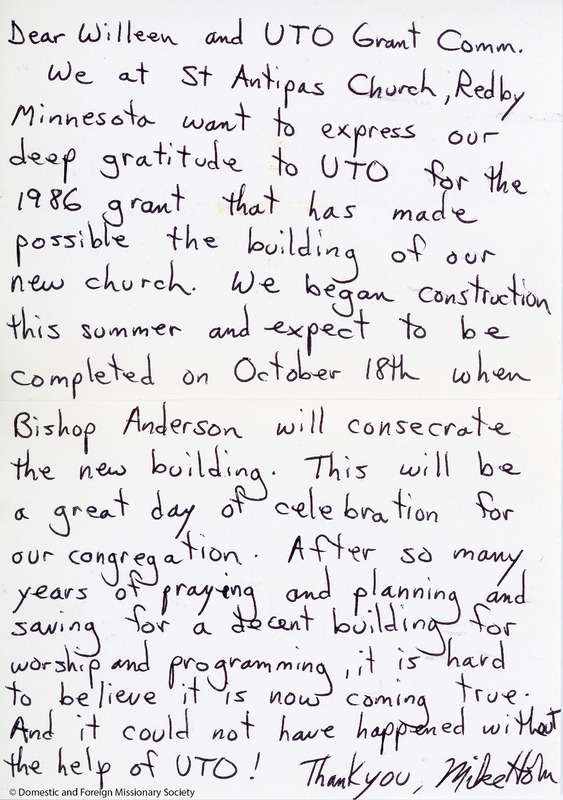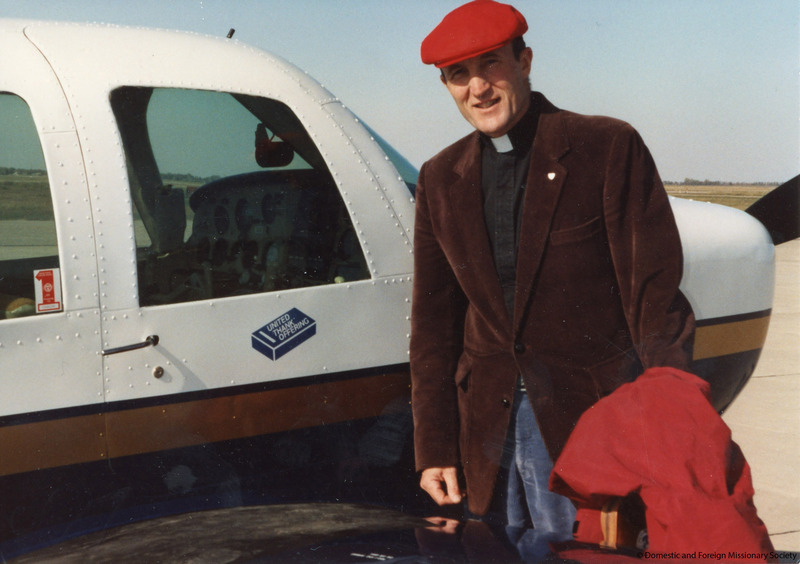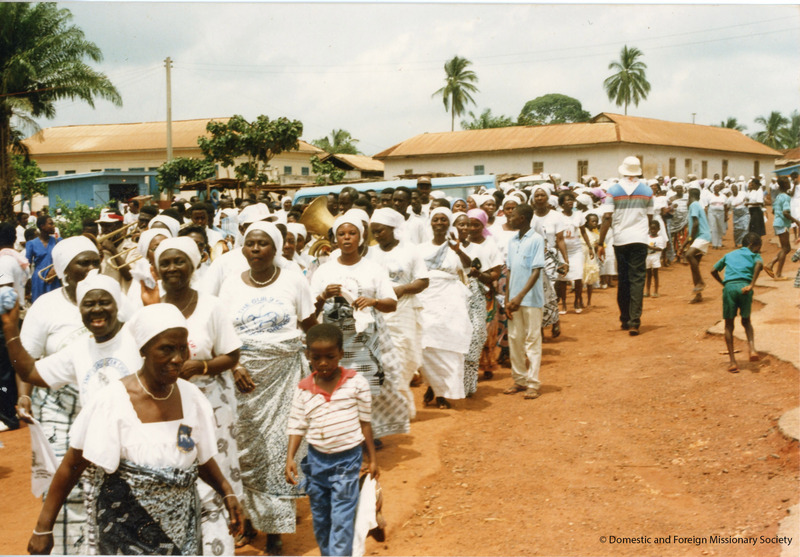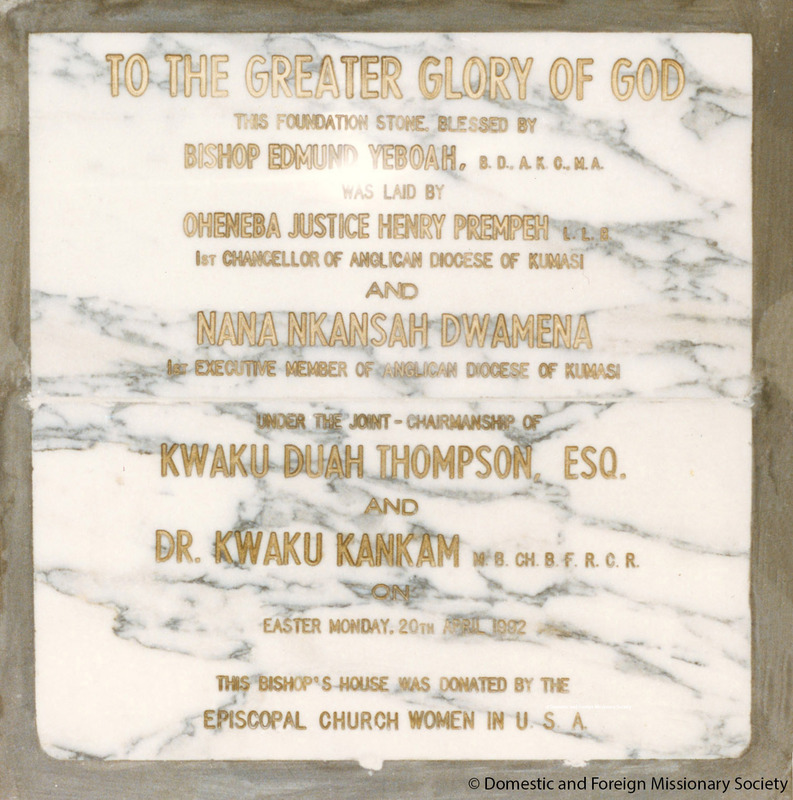Social Welfare
From its inception, UTO funds were also intended to support ministries outside of the church's regular mission budget, which largely supported ordained men. As women were integrated into the governance of the church, the focus of the UTO turned to mission needs beyond the interests of women in ministry. In doing so, it remained true to its guiding principle: to support groups underserved by existing church programs.
In the earliest decades, the budget of the Domestic and Foreign Missionary Society was unable to fund much of the work that was needed in geographically vast areas of the American West and successful missions in Asia and Latin America. After World War I, the UTO funds supported church planting, new missionaries, the construction of schools and hospitals overseas, and the positions of missionary bishops in many domestic and foreign territories, including Oklahoma and Alaska.
During World War II, a portion of the Offering went to care for those directly affected by the devastation of the war, building orphanages, supplying aid programs, and supporting former prisoners of war. Domestically, the UTO turned its attention to sharecroppers, migrant workers, and minorities, undertaking ministries that the larger church had not yet begun to fully recognize.
Beginning in the 1960s, the Domestic and Foreign Missionary Society began funding missionary work out of its own budget. As a result, the UTO funds were no longer used for missionaries but instead redirected to social welfare and ministry programs such as childcare facilities in low-income areas, support houses for women and girls, and alcoholism prevention programs.
In 1967, Presiding Bishop John Hines challenged the church to fund a “Special Program” of grants to community organizations in the nation’s poorest areas. The women of the UTO were the first to respond, pledging the entire 3 million dollar offering to fund the General Convention Special Program (GCSP) to address urban strife and racial injustice. The GCSP provided grants for inner city infrastructure renewal, Black and Hispanic cultural centers, Appalachian coal cooperatives, vocational training programs, and numerous other similar groups, all of which were founded and run by members of the communities that they served.
As a response to the dissolution of the General Division of Women’s Work and the General Convention’s creation of a Committee for Women, which occurred in 1968, the UTO established a new committee that was organized as a standalone entity in 1971. With 13 members, including two members of the Committee for Women, one member from the Standing Committee on Lay Ministries, and one member from the Executive Council, the new UTO committee continued to direct the work of the organization and its involvement with dioceses and parishes across the church. Despite restructuring that further integrated the UTO Committee into the existing structure of The Episcopal Church, the push towards community initiatives and local programs continued through the 1970s and 1980s.
In the 1990s, the UTO funded positions for after-school programs, programs for the elderly, and a host of other initiatives to serve single mothers, the unhoused, at-risk youth, and migrants. In reaction to government legislation, including The Americans with Disabilities Act (ADA), that required businesses to make expensive updates and renovations in order to stay open, the UTO redirected their funds into their communities, distributing grants to allow churches to make structural improvements, meet new compliance standards for health-code inspections of church kitchens, hire staff for child-care programs, and ensure that buildings had ADA required access for disabled patrons.
Restructured again in 2012, the UTO Committee was reorganized as the United Thank Offering Board, with new bylaws and a renewed focus on the spiritual, rather than simply budgetary, dimensions of the Offering. Today, the UTO is no longer an auxiliary offering organized exclusively by women, but is an integral part of the church and open to all regardless of gender. Through all of these changes, the ceremony of the Ingathering at the Triennial Meeting has continued, and the core of the United Thank Offering has remained unchanged.

